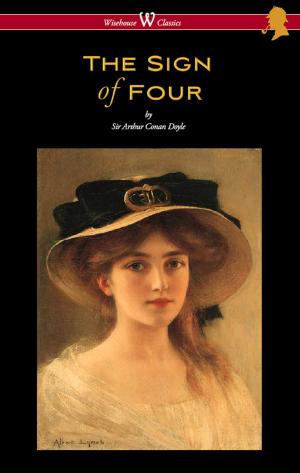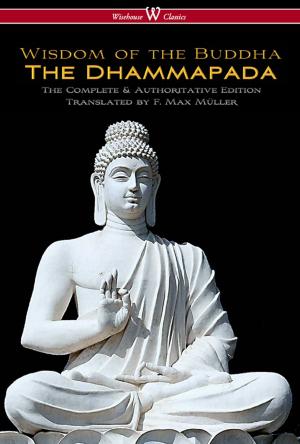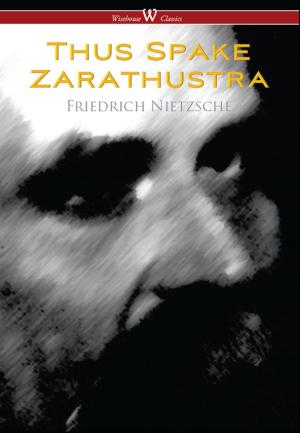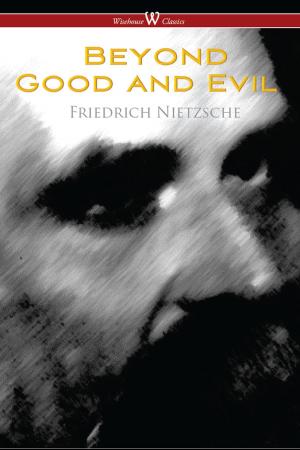The Egyptian Book of the Dead: The Papyrus of Ani in the British Museum (Wisehouse Classics Edition)
Nonfiction, Religion & Spirituality, Reference, Antiquities & Archaeology, History, Ancient History, Egypt| Author: | E. A. Wallis Budge | ISBN: | 9789176371756 |
| Publisher: | Wisehouse | Publication: | November 11, 2016 |
| Imprint: | Wisehouse Classics | Language: | English |
| Author: | E. A. Wallis Budge |
| ISBN: | 9789176371756 |
| Publisher: | Wisehouse |
| Publication: | November 11, 2016 |
| Imprint: | Wisehouse Classics |
| Language: | English |
The Papyrus of Ani is a papyrus manuscript with cursive hieroglyphs and illustrations created c. 1250 BCE, in the 19th dynasty of the New Kingdom of ancient Egypt. Egyptians compiled an individualized book for certain people upon their death, called the Book of Going Forth by Day, more commonly known as the Book of the Dead, typically containing declarations and spells to help the deceased in their afterlife. The Papyrus of Ani is the manuscript compiled for the Theban scribe Ani.
It was stolen from an Egyptian government storeroom in 1888 by Sir E. A. Wallis Budge, as described in his two-volume By Nile and Tigris, for the collection of the British Museum where it remains today. Before shipping the manuscript to England, Budge cut the seventy-eight foot scroll into thirty-seven sheets of nearly equal size, damaging the scroll's integrity at a time when technology had not yet allowed the pieces to be put back together.
This Papyrus of Ani, a full version of the Theban recension, is presented here by Dr. Budge, who later became perhaps the world's most renowned Egyptologist. Reproduced in full are a clear copy of the Egyptian hieroglyphs, an interlinear transliteration of their sounds (as reconstructed), a word-for-word translation, and separately a complete smooth translation. All this is preceded by an introduction of more than 150 pages. As a result of this multiple apparatus the reader has a unique opportunity to savor all aspects of the Book of the Dead, or as it is otherwise known, The Book of the Great Awakening.
The Papyrus of Ani is a papyrus manuscript with cursive hieroglyphs and illustrations created c. 1250 BCE, in the 19th dynasty of the New Kingdom of ancient Egypt. Egyptians compiled an individualized book for certain people upon their death, called the Book of Going Forth by Day, more commonly known as the Book of the Dead, typically containing declarations and spells to help the deceased in their afterlife. The Papyrus of Ani is the manuscript compiled for the Theban scribe Ani.
It was stolen from an Egyptian government storeroom in 1888 by Sir E. A. Wallis Budge, as described in his two-volume By Nile and Tigris, for the collection of the British Museum where it remains today. Before shipping the manuscript to England, Budge cut the seventy-eight foot scroll into thirty-seven sheets of nearly equal size, damaging the scroll's integrity at a time when technology had not yet allowed the pieces to be put back together.
This Papyrus of Ani, a full version of the Theban recension, is presented here by Dr. Budge, who later became perhaps the world's most renowned Egyptologist. Reproduced in full are a clear copy of the Egyptian hieroglyphs, an interlinear transliteration of their sounds (as reconstructed), a word-for-word translation, and separately a complete smooth translation. All this is preceded by an introduction of more than 150 pages. As a result of this multiple apparatus the reader has a unique opportunity to savor all aspects of the Book of the Dead, or as it is otherwise known, The Book of the Great Awakening.















